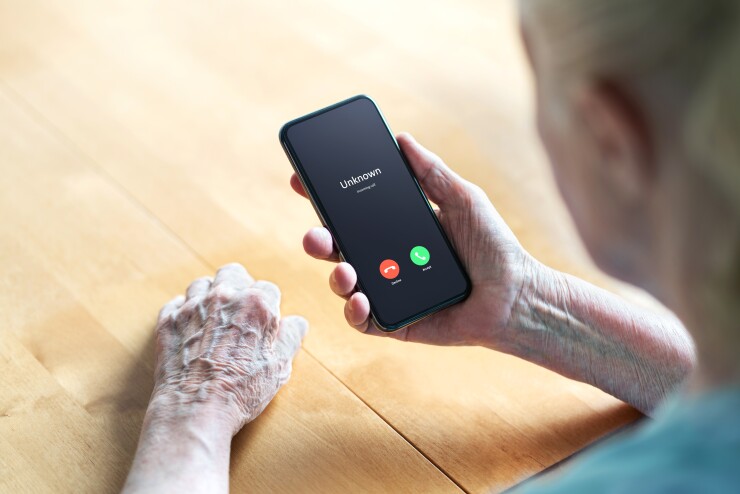
A neobank is slowing down payment speed to protect its customers from financial crimes, even as other banks and financial institutions are scrambling to reduce friction in the payments process.
"In terms of keeping [our customers' money] safe, that's where we've really leaned in, because we think that financial fraud has always been a big deal," said Kevin Nazemi, co-founder and CEO of Charlie. "You can call it a five-alarm fire; you could call it a tsunami, but with [generative] AI, you're seeing a proliferation of fraud on every front with text messages, emails, voice and, soon, video."
Many banking customers are seeking faster service, and companies such as
Hybrid scams such as
Other hybrid scams involve combining tech-support fraud with impersonation scams, McKenna said. For example, a pop-up might appear on a user's computer informing them they have a virus and directing them to call a number, only to then impersonate government agencies such as the Federal Bureau of Investigation or the Social Security Administration to solicit a payment.
"Every region has their scam," McKenna said. "Southeast Asia is pig butchering. Nigerian scammers are romance scammers [and] in India, they're all about impersonation scams.
"The thing about these scams, which is why they're the long con, these are not people off the street. These are organizations that have developed these tried-and-true techniques," he said.
Fraudsters often exploit elderly consumers, whose tech literacy may be less sophisticated than younger consumers. In fact, the AARP estimated
Charlie, for its part, is trying not only to protect its customer base from the long con but also smaller scams.
"Sometimes what's lost and what's important … is there's so much under-$1,000 fraud," Nazemi said. "If you're living Social Security check to Social Security check like 60% of Americans do and you're hit with a $1,000 scam, that really has material, monetary consequences."
To fight fraud, Charlie has incorporated what it calls Speed Bumps, a proprietary set of pauses, alerts and real-time education that is introduced "at the exact moment where there's the most vulnerability from a customer standpoint" into its payment workflow, Nazemi said.

"The whole industry talks about moving money faster, which is great, but we believe there's instances where it makes sense to just take a breath," he said.
Take the example of petty impersonation fraud: A grandmother is contacted by "her grandson," who just lost his phone and needs $150 to get a new one. Grandma, none the wiser, may initiate that payment.
With Speed Bump, that payment would be paused for six hours because a new payee is added, Nazemi said. "We couple that pause with two things. One is a set of real-time alerts in the app, by text and via email that says you're trying to transfer this money, but will also be coupled with education that is pertinent to the circumstances."
The neobank also allows customers to set custom rules for their account to limit avenues through which payments can flow. Customers might bar online purchases or only allow online purchases through specific merchants, limit transactions to only recurring ones or flag transactions for additional review if they are greater than a specified dollar amount.
Family members can also act as a "fraud alerts co-pilot" to be contacted when certain events take place on the account, such as a change of address, a new card issuance or a change to bill pay. "They won't have money-movement control, but they'll be alerted to potential fraudulent activity."
It's not only consumers over 60 who are falling victim to these scams. The former CEO of failed Heartland Tri-State Bank, Shan Hanes, was






